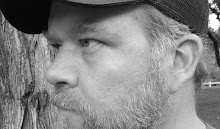
Here are a few tips on acting from a student of mine at Family Theatre Warehouse. Ryan is seventeen and is currently in rehearsal on his third musical with us. He has also spent quite a bit of time in the tech booth this last year with three technical director credits! I encourage you to share your experience with us too. Send your article to Markrmorris2@sbcglobal.net for consideration.
Three things I have learned about acting by: Ryan Pennington
I believe that acting reflects life and the way people feel about their emotions in every day life. Standing on stage and expressing feelings that can deeply impact and audience, that is what acting is to me. If you want to become an actor, or are just curious, here are some things I have learned that may help you.
1. Let everything come naturally. When on stage , or delivering dialogue, see in your mind how the character would react to the situation. If the character is frustrated, take your hand and run it down your face and throw in a stressful sigh. What I do sometimes is watch movies and picture myself as that character, then reenact that scene later in the middle of my living room. This may help improve your acting skills.
2. ALWAYS listen to your director (no I swear I {Mark} did not pay him to write this), If he or she gives specific instructions on what they want to see, do not ignore what they have said.
3. For some people stage fright is an issue, but what I have learned is that it is something to get over. I want to give an exercise you can do at home. Pick the biggest room in your house. Stand and imagine that the whole room is filled. This way it might make you feel more comfortable when it is time for you to perform.
That’s all I have for now, I hope whoever is reading this will feel more confidant than before.
All the world is a stage and all the men and women are merely players-William Shakespeare
God Bless
Ryan Pennington
Performing as Albert Peterson in Bye Bye Birdie
Three things I have learned about acting by: Ryan Pennington
I believe that acting reflects life and the way people feel about their emotions in every day life. Standing on stage and expressing feelings that can deeply impact and audience, that is what acting is to me. If you want to become an actor, or are just curious, here are some things I have learned that may help you.
1. Let everything come naturally. When on stage , or delivering dialogue, see in your mind how the character would react to the situation. If the character is frustrated, take your hand and run it down your face and throw in a stressful sigh. What I do sometimes is watch movies and picture myself as that character, then reenact that scene later in the middle of my living room. This may help improve your acting skills.
2. ALWAYS listen to your director (no I swear I {Mark} did not pay him to write this), If he or she gives specific instructions on what they want to see, do not ignore what they have said.
3. For some people stage fright is an issue, but what I have learned is that it is something to get over. I want to give an exercise you can do at home. Pick the biggest room in your house. Stand and imagine that the whole room is filled. This way it might make you feel more comfortable when it is time for you to perform.
That’s all I have for now, I hope whoever is reading this will feel more confidant than before.
All the world is a stage and all the men and women are merely players-William Shakespeare
God Bless
Ryan Pennington
Performing as Albert Peterson in Bye Bye Birdie









